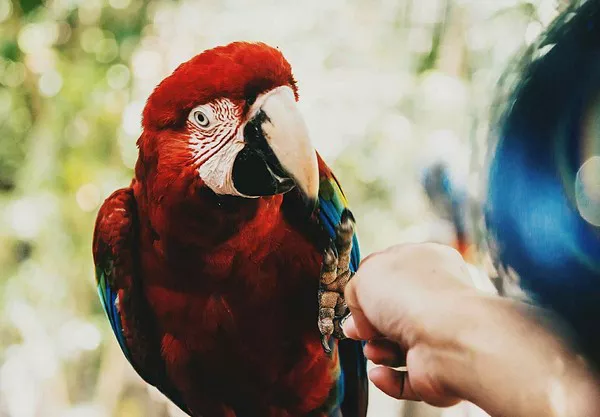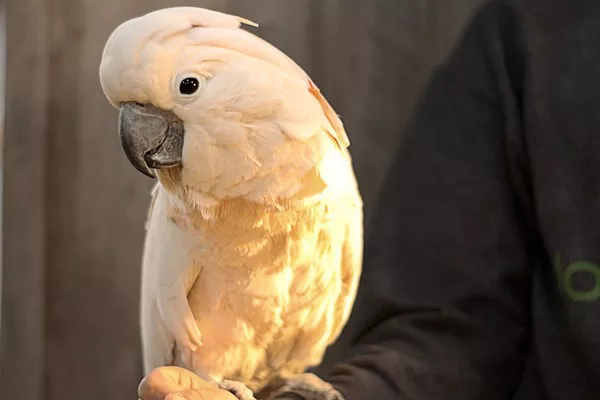Guinea pigs, or cavies as they are sometimes called, are popular pets known for their gentle, social, and playful nature. They are often kept in pairs or small groups because they are highly social animals. However, their natural behaviors and sounds can be challenging for some pet owners, especially when these sounds disrupt your sleep at night. Understanding why guinea pigs make noise and how to address their nighttime activity can help create a peaceful living environment for both you and your pet. In this article, we will discuss the reasons guinea pigs make noise at night, the types of sounds they make, and practical ways to reduce their nighttime activity.
Why Do Guinea Pigs Make Noise at Night?
Guinea pigs are crepuscular, which means they are most active during dawn and dusk. In the wild, they are prey animals, so they need to be awake during low-light hours to forage for food and stay alert to predators. As pets, they maintain this instinct, and it may cause them to be more active during nighttime hours, especially if their cage is in a quiet area of the house.
Some guinea pigs may be more vocal at night due to the lack of distractions in their environment. In the wild, they are constantly alert and aware of their surroundings. When they are in a more confined environment, such as a cage inside your home, they may vocalize to express their needs, communicate with other guinea pigs, or simply because they feel restless.
The Types of Noises Guinea Pigs Make
Before addressing how to keep your guinea pig quiet at night, it is essential to understand the different types of noises they make and their meanings. Guinea pigs communicate with a variety of sounds, and knowing the difference between these noises can help you determine why your guinea pig is being vocal at night.
1. Wheeking (Whining or Calling)
Wheeking is one of the most common sounds made by guinea pigs, and it is typically loud and high-pitched. It often occurs when guinea pigs are hungry, excited, or seeking attention. If your guinea pig is wheeking at night, it could be a sign that it is hungry or wants you to provide food. Alternatively, they might be trying to get your attention for social interaction.
2. Chattering
Chattering involves rapid teeth clicking and is often an expression of irritation, frustration, or even aggression. If your guinea pig is chattering at night, it may be upset or stressed. This could happen if your guinea pig is feeling threatened or if they are housed with other guinea pigs and there is tension between them.
3. Purring
A soft, continuous purring sound can indicate that your guinea pig is content, relaxed, or enjoying your company. However, guinea pigs can also purr when they are frightened or anxious. If your guinea pig is purring loudly at night, it could indicate that they are uneasy or trying to calm themselves down.
4. Squealing
Squealing is a louder, more intense noise that often signals fear, pain, or distress. It is common if a guinea pig is startled or injured. If your guinea pig is squealing at night, it is important to check if there is an underlying cause such as an injury or if they are feeling scared.
5. Snorting
A snorting sound is often made by guinea pigs when they are curious or slightly confused. They may snort when they are investigating something new or when they are in a new environment. This sound is generally harmless and is not a sign of distress.
6. Drumming
Some guinea pigs make a drumming noise with their feet. This is often a sign of excitement or impatience. If your guinea pig is drumming at night, they could be trying to communicate that they are excited or that they want something (such as food or attention).
Common Reasons Guinea Pigs Make Noise at Night
Now that we have covered the different types of sounds guinea pigs make, let’s explore the common reasons why they may become noisy at night.
1. Hunger or Thirst
Guinea pigs have fast metabolisms and require frequent meals throughout the day and night. If they are not given enough food or water during the day, they may become hungry or thirsty at night. This can lead to vocalizations like wheeking or calling. To prevent this, ensure your guinea pig has access to fresh hay, vegetables, and water throughout the day and night.
2. Loneliness or Boredom
Guinea pigs are social animals, and they thrive when they have a companion. If your guinea pig is alone, it may become lonely and more vocal, especially at night when there are fewer distractions. Adding another guinea pig or providing your pet with more interactive toys or activities can help reduce their boredom and nighttime restlessness.
3. Stress or Fear
Guinea pigs are prey animals, so they are naturally cautious and easily frightened. Changes in their environment, such as loud noises, sudden movements, or unfamiliar sights, can cause them to become anxious or fearful. At night, when it is quieter, they may be more sensitive to their surroundings. If your guinea pig is stressed or frightened, it may make noises like chattering, wheeking, or squealing.
4. Illness or Pain
If a guinea pig is in pain or feeling unwell, it may vocalize more than usual. They may squeal or whimper if they are injured or suffering from an illness. If your guinea pig suddenly starts making more noise at night, it is important to monitor them for signs of illness or injury and take them to a veterinarian if necessary.
5. Environmental Factors
The environment where your guinea pig is kept can have a significant impact on its behavior. If their cage is located in a noisy area of the house, such as near a television or loud appliances, the sounds may trigger vocalizations. Similarly, if your guinea pig’s cage is in a drafty or cold location, it may cause them to be restless and vocal. Make sure your guinea pig’s cage is in a quiet, safe, and comfortable spot to help reduce nighttime activity.
How to Keep Your Guinea Pig Quiet at Night
Now that we understand why guinea pigs make noise at night, let’s explore practical ways to reduce or manage their vocalizations. While it is impossible to eliminate all sounds entirely, there are several strategies you can try to minimize the noise and create a more peaceful environment for both you and your pet.
1. Provide Enough Food and Water
One of the most common reasons guinea pigs make noise is because they are hungry or thirsty. To prevent this, make sure that your guinea pig has access to a constant supply of fresh hay, vegetables, and water. Guinea pigs need hay as the majority of their diet, as it provides essential fiber for digestion. You can also provide a small amount of pellets and fresh water, but the key is to make sure they have everything they need before bedtime.
2. Ensure Social Interaction
Guinea pigs are highly social creatures, and they can get lonely and anxious if left alone for long periods. To keep them calm and reduce nighttime vocalizations, consider adopting another guinea pig as a companion. Guinea pigs are much happier and more relaxed when they have a buddy to interact with. However, it’s important to ensure that both guinea pigs are compatible and have enough space to avoid territorial disputes.
3. Create a Calm Environment
Guinea pigs are sensitive to their surroundings, so it is essential to create a calm and comfortable environment for them. Keep their cage in a quiet part of the house, away from loud noises or distractions. You can also add soft bedding and hiding spots for them to feel secure. Avoid placing their cage near windows where they may be startled by sudden movements or bright lights.
4. Introduce a Nighttime Routine
Guinea pigs are creatures of habit and thrive on routine. Establish a consistent schedule for feeding, playtime, and interaction to help your guinea pig feel secure and relaxed at night. You can also dim the lights in the room to signal that it is time for them to settle down. Gradually, your guinea pig will learn when it’s time to wind down and when it’s time to be active.
5. Provide Enrichment and Toys
Boredom is another common cause of nighttime vocalizations. If your guinea pig is not mentally or physically stimulated, it may become restless and vocal. To keep your guinea pig engaged and reduce nighttime noise, provide a variety of toys, tunnels, and chew items. You can also create a more enriched environment by changing the layout of their cage or adding new activities to keep them entertained.
6. Monitor for Signs of Illness or Pain
If your guinea pig’s nighttime noises suddenly increase or seem abnormal, it is important to monitor them for signs of illness or injury. Look for changes in behavior, appetite, or posture. If your guinea pig seems lethargic, refuses to eat, or is squealing in pain, take them to a veterinarian as soon as possible.
7. Use Calming Products
If your guinea pig is particularly anxious or stressed at night, you may want to try calming products that can help soothe them. There are various herbal supplements, sprays, and diffusers available that contain ingredients like lavender or chamomile, which are known for their calming effects. Be sure to choose pet-safe products, and consult your veterinarian if you have concerns about using calming products.
Conclusion
Guinea pigs are wonderful pets, but their nighttime vocalizations can sometimes be disruptive. By understanding the reasons behind their noises and addressing their physical and emotional needs, you can create a quieter and more peaceful environment for both you and your pet. Providing a steady supply of food and water, ensuring companionship, and offering an enriched environment are just a few ways to reduce nighttime restlessness. Remember that guinea pigs are social animals, and with the right care and attention, they will be happy, healthy, and content—day or night.
By following the tips outlined in this article, you can enjoy a more peaceful nighttime experience while ensuring your guinea pig feels comfortable, secure, and well-cared for.
Related Topics:




















